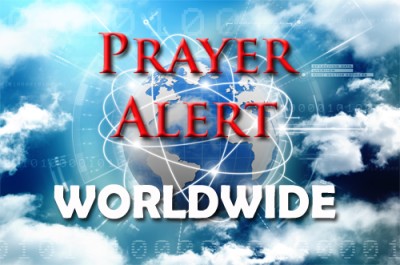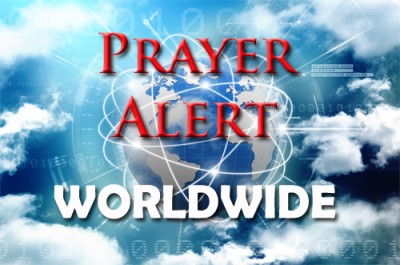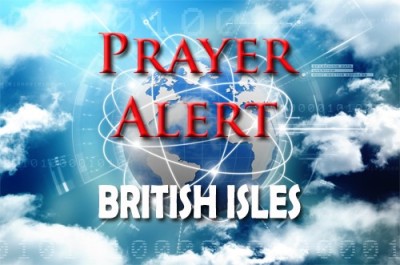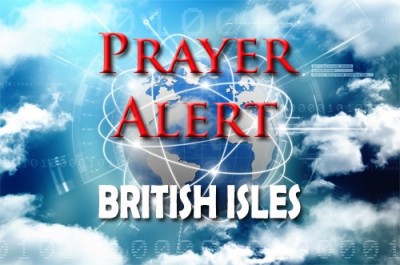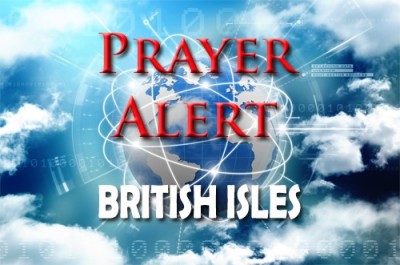The Honduran presidential election has become increasingly tense after the National Electoral Council (CNE) announced a full manual recount of the 30 November vote. Currently there is a wafer-thin margin between the two leading candidates, which has prompted the CNE to announce a ‘technical tie’; it is calling for patience while all the votes are counted manually. Donald Trump sharply criticised the process on social media, accusing the authorities of attempting to alter the outcome and warning that there would be ‘hell to pay’ if his preferred candidate, Nasry Asfura, is not declared the winner. Asfura, a right-wing former mayor, held a lead of just over 500 votes with more than half of ballots counted. His centrist rival, Salvador Nasralla, cited internal projections suggesting he was ahead but refrained from claiming victory. Whatever the final outcome, the election is a clear defeat for the country’s ruling left-wing, whose candidate, Rixi Moncada, only has 19% of the vote.
Nearly 100,000 people in northern Mozambique have fled in recent weeks as armed groups have stormed their villages, often at night. They have burnt homes, killed civilians, and forced families to escape without belongings or documents. Nampula province now faces a fourth major influx of displaced people in recent months, pushing already fragile host communities beyond capacity. Schools, churches, and open spaces are overflowing, while humanitarian workers are struggling to respond to simultaneous attacks in many districts. Violence linked to the so-called IS has already displaced more than 1.3 million people since 2017, and now threatens communities which have previously been safe refuges. UNHCR warns that current funding covers only half of what is required, and needs will rise sharply into 2026. Lacking adequate shelter, food, and water, some families are returning to unsafe areas simply because overcrowded conditions leave them no other choice.
A landmark ruling in Malaysia has recognised state involvement in the disappearance of Pastor Raymond Koh, who was abducted in broad daylight in February 2017 and has not been seen since. The high court has ordered the government and police to pay RM 37 million (about £6.8 million) in compensation for wrongful acts. Justice Su Tiang Joo allocated RM 33 million for the enforced disappearance and a further RM 4 million in damages to Pastor Koh’s wife, Susanna Liew, with RM 250,000 awarded for costs. Importantly, the funds must be held in trust until Koh’s whereabouts are known, highlighting the ongoing search for truth. Koh’s abduction, which was captured on camera, involved three SUVs and fifteen men and was completed within forty seconds. While the ruling offers a measure of closure and vindication, his wife expressed deep concern that authorities have failed to act on the findings of previous inquiries or take any action against police officers who are confirmed as taking part in the abduction. Calling on the government to hold an enquiry about what happened to Pastor Koh and his present whereabouts, CSW’s president Mervyn Thomas said, ‘This is a landmark decision which demonstrates the judiciary’s independence by holding state actors accountable, and setting a legal precedent for cases involving enforced disappearance’.
A Christian street preacher in Swindon has been acquitted of charges related to comments he made in a public space, a case which sparked wider debate about free speech and the policing of perceived hate incidents. Shaun O’Sullivan, 36, was accused of religiously aggravated intentional harassment after a Muslim family claimed his remarks about Jews and Palestine were directed personally at them because they wore hijabs. However, the prosecution case rested largely on their testimony, and CCTV footage showed only a very brief encounter with no sustained confrontation. In court, one complainant acknowledged she had not heard the full message and that her perceptions were influenced by distress over the Gaza conflict. The defence argued O’Sullivan was preaching a general Christian message - not using abusive language - and warned that criminalising public evangelism threatens long-standing freedoms. Supporters described the verdict as a vital affirmation of the right to share Christian beliefs openly in the public square.
The twentieth Mitzvah Day in the UK demonstrated the power of shared service to strengthen interfaith relationships at a time when tensions have risen nationwide. Volunteers from Jewish, Christian and Muslim communities joined together in more than 200 projects, including preparing food for night shelters and refugee support at Alyth Synagogue in Golders Green. Organisers emphasised that practical cooperation builds trust where dialogue alone can struggle, particularly following strained relations linked to conflict in the Middle East. Founder Laura Marks, who also co-created the Nisa-Nashim network for Jewish and Muslim women, celebrated ongoing friendships and urged continued collaboration beyond the annual event. Leaders, including Rabbi Josh Levy and Bishop Anderson Jeremiah, noted that initiatives like Mitzvah Day help to deepen community bonds and provide resilient foundations for future peacebuilding. Participants said that acts of kindness reflect religious responsibility to seek the good of others, even amid political or social division.
Budget: the main headlines
27 Nov 2025Rachel Reeves has delivered her second Budget against a backdrop of weak economic growth, high inflation and tightening household finances. Seeking to raise revenue without triggering an inflation spike, she avoided the previously signalled rise in income tax rates and instead relied on a wide mix of indirect tax changes and frozen thresholds. Measures include new or higher taxes on wealth, property, tourism, gambling and high-sugar drinks, along with a future per-mile charge for electric vehicles. A major welfare change will see the two-child benefit cap scrapped in April 2026, while benefits rise in line with inflation. Business incentives are also adjusted, including changes to capital allowances and dividend taxation. She has also raised the basic living wage significantly: see Critics warn the strategy adds complexity and prolongs record-high tax levels, raising concerns that further tax rises may still be needed. Reeves positioned the Budget as a necessary step to stabilise public finances while supporting workers and the most vulnerable during economic uncertainty.
The Government has announced a shift in its North Sea energy policy, allowing limited new oil and gas licences - but only where developments connect to existing fields and infrastructure without further exploration. The move marks a softening of Labour's previous pledge to halt new licensing entirely as part of efforts to reach net-zero emissions by 2050. Britain’s oil and gas production has sharply declined since the early 2000s, and further reductions are expected over coming decades. At the same time, the Government confirmed it will keep in place the windfall tax introduced during the energy price surge until 2030, despite strong lobbying from industry leaders who argue it deters investment and threatens jobs. Ministers maintain the tax remains essential to raise funds for the transition to clean energy, and a replacement price-linked mechanism is planned once the levy expires. The debate highlights the complex balance between economic security, climate responsibility and workforce stability.
Major changes to the justice system in England and Wales are being considered as justice secretary David Lammy proposes restricting the right to a jury trial for many criminal cases. Only those accused of the most serious offences - such as rape, murder, and manslaughter - would be guaranteed a jury; all other defendants facing serious charges would be tried by a judge alone. The proposals aim to address record delays and a backlog of more than 78,000 Crown Court cases, which could rise to more than 100,000 by 2030 without intervention. Supporters say urgent reform is needed to ensure timely justice for victims, but the chair of the Criminal Bar Association, which represents criminal barristers, has said: ‘Their actions will destroy a criminal justice system that has been the pride of this country for centuries, and destroy justice as we know it. Juries are not the cause of the backlog. The cause is the systematic underfunding and neglect that has been perpetrated by this government and its predecessors for years.’
